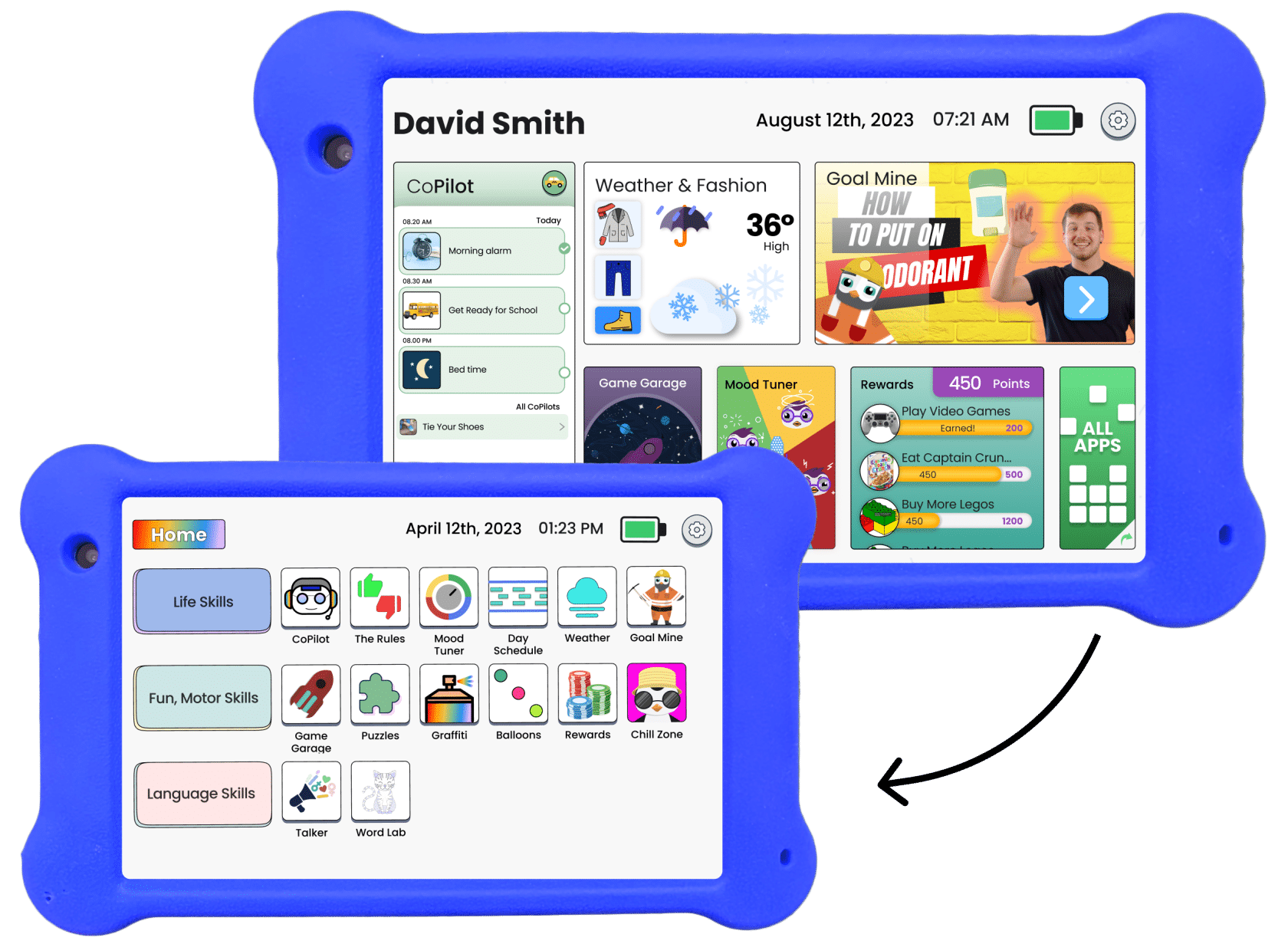Dyscalculia is characterized by various symptoms that can hinder an individual’s math abilities. Recognizing these symptoms is essential for early identification and intervention.
- Difficulty counting and understanding number concepts.
- Struggles with basic arithmetic operations like addition, subtraction, multiplication, and division.
- Challenges with telling time and understanding the concept of “more” and “less.”
- Trouble with understanding and applying math-related terminology and symbols.
- Difficulty organizing and sequencing numbers.
- Inconsistent or slow recall of basic math facts.
- Poor spatial awareness and difficulty visualizing math problems.
- Persistent difficulties despite adequate instruction and practice.
Being aware of these symptoms can help individuals and parents seek appropriate support and accommodations to address dyscalculia. Goally, a tablet with interactive apps for kids, can help children with dyscalculia by improving executive functioning, routines, and cognitive development through gamified learning, visual schedules, and skill training videos.
Editor’s note: This information is not meant to diagnose or treat and should not take the place of personal consultation, as needed, with a qualified healthcare provider and/or BCBA.
This post was originally published on Feb. 5, 2023. It was updated on July 12, 2023.













